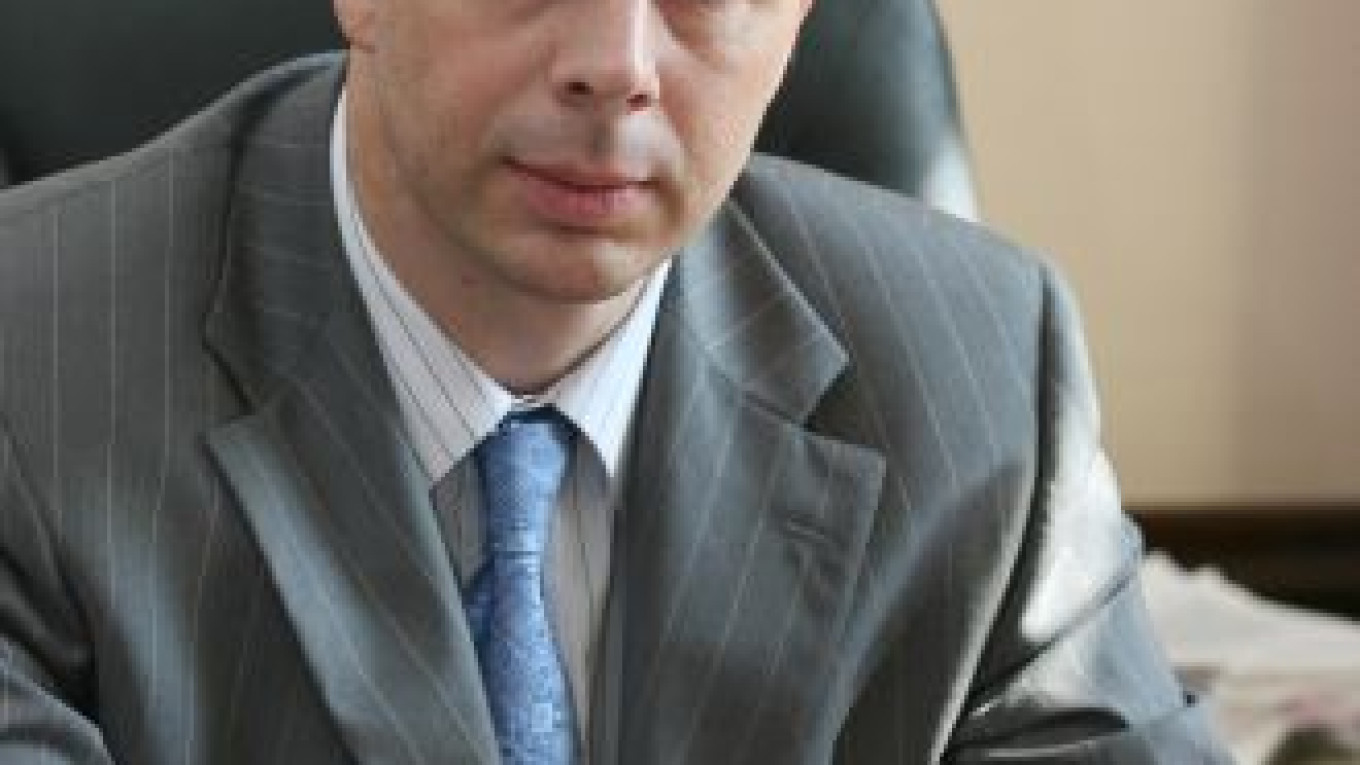President Dmitry Medvedev confirmed Anton Siluanov as finance minister on Friday — a sign, some analysts say, that the career economist will remain in the Cabinet after the March presidential elections and that the former minister, Alexei Kudrin, will not return to the post.
Siluanov was named acting finance minister when Kudrin quit after a public spat with Medvedev in September.
Kudrin appeared to grudgingly endorse the decision on Friday. "All I can say about Anton Siluanov is that he is a professional who knows all the mechanisms and levers of work and has a great deal of experience, so he deserves to be minister," he told RIA-Novosti.
The appointment at this stage of the game suggests that Siluanov, a 48-year-old career civil servant, will stay on after the presidential election in March, which is expected to be followed by a Cabinet reshuffle.
But it could also herald an increase in spending as the government moves away from the era of strict fiscal conservatism that characterized Kudrin's 11 years at the ministry.
Siluanov became a deputy finance minister in 2005 and was responsible for regional budget policy under Kudrin. But he is largely untested in the political arena, and analysts see him as an unknown quality.
The professional economist first joined the Finance Ministry of the Russian Soviet Federative Socialist Republic in 1985 and, other than a brief hiatus for national service, has been working at the institution ever since, according to a biography published by RIA-Novosti.
A retiring figure who is a specialist in budget agreement — the interrelation of budgets in different regions and with the Federal Budget — he comes with a reputation as a professional and a safe pair of hands, but is not well known even among his peers.
"I've only heard good things, but then he was never a very public figure," said Natalya Orlova, chief economist at Alfa Bank. "Of course, a finance minister has to be a somewhat public figure, and the question is how he will adapt himself to that role."
His performance so far has been capable, she said, but he does not exercise the same political clout as his predecessor and will find it difficult to repeat Kudrin's success in facing down calls for higher spending from Cabinet colleagues.
"About 70 to 80 percent of the additional outlays in next year's budget is earmarked for social expenditure — that is, increasing pensions or increasing salaries in the defense and security sectors. The risk of continued additional expenditure growth is definitely present," Orlova said.
"If there is a second or third wave of crisis and a negative scenario for Russian growth, it would be a possibility that the Cabinet will try to stimulate the economy through budgetary tools, and I think the new minister of finance will certainly have difficulties opposing that," she added.
A key challenge for Siluanov will be to balance budget risk with the pressure for more spending, in particular choosing who should bear the burden of increased taxation. Economists will be watching to see whether he has the political clout to maintain relatively high taxes on the oil and gas sector to support plans to diversify the economy, Orlova said.
He already faces challenges. A decline in Russian bourses that began in August has accelerated since the Dec. 4 parliamentary elections against a background of opposition protests claiming that the vote of the ruling United Russia party was inflated by ballot fraud.
Meanwhile, Russian banks are feeling a liquidity squeeze as capital flight increases and nervous investors facing difficulties in the euro zone scale back their activities.
Meeting with Medvedev on Friday, Siluanov said his department had prepared a package of contingency measures to deal with any deterioration in the global financial climate.
"The situation on global markets, especially in Europe, is uncertain, and we, the Finance Ministry, are preparing for different scenarios," Siluanov said during a meeting in the Kremlin, Reuters reported.
Siluanov's confirmation in the role appears to close the door to a return to the ministry by Kudrin, who Prime Minister Vladimir Putin has hinted still has a future in the Cabinet.
Former Finance Minister Kudrin became well known for his outspoken and stubborn insistence on fiscal discipline in the face of pressure for stimulus spending from other government officials, including President Medvedev and Economic Development Minister Elvira Nabiullina.
Kudrin's resolve won plaudits at home and abroad when the reserve funds and foreign currency he had stockpiled cushioned Russia from the impact of the 2008 financial crisis.
His career in government ended during a public disagreement with Medvedev over plans to jack up defense spending. The former finance minister has since continued to stick his oar into public debate, publicly discussing the formation of a new liberal party.
Some believe that he may return as prime minister, even though Putin has publicly offered that job to Medvedev.
A Message from The Moscow Times:
Dear readers,
We are facing unprecedented challenges. Russia's Prosecutor General's Office has designated The Moscow Times as an "undesirable" organization, criminalizing our work and putting our staff at risk of prosecution. This follows our earlier unjust labeling as a "foreign agent."
These actions are direct attempts to silence independent journalism in Russia. The authorities claim our work "discredits the decisions of the Russian leadership." We see things differently: we strive to provide accurate, unbiased reporting on Russia.
We, the journalists of The Moscow Times, refuse to be silenced. But to continue our work, we need your help.
Your support, no matter how small, makes a world of difference. If you can, please support us monthly starting from just $2. It's quick to set up, and every contribution makes a significant impact.
By supporting The Moscow Times, you're defending open, independent journalism in the face of repression. Thank you for standing with us.
Remind me later.


